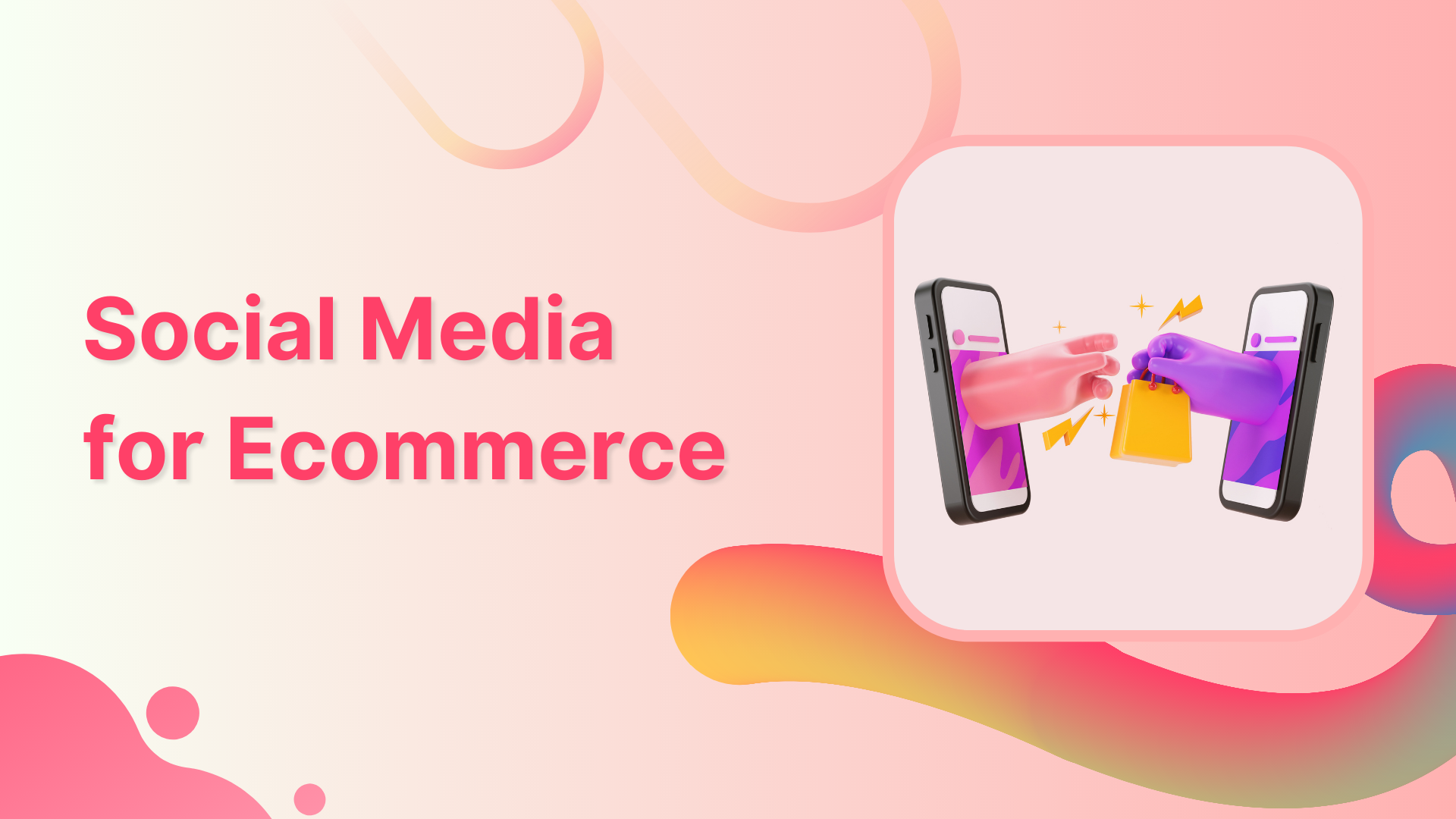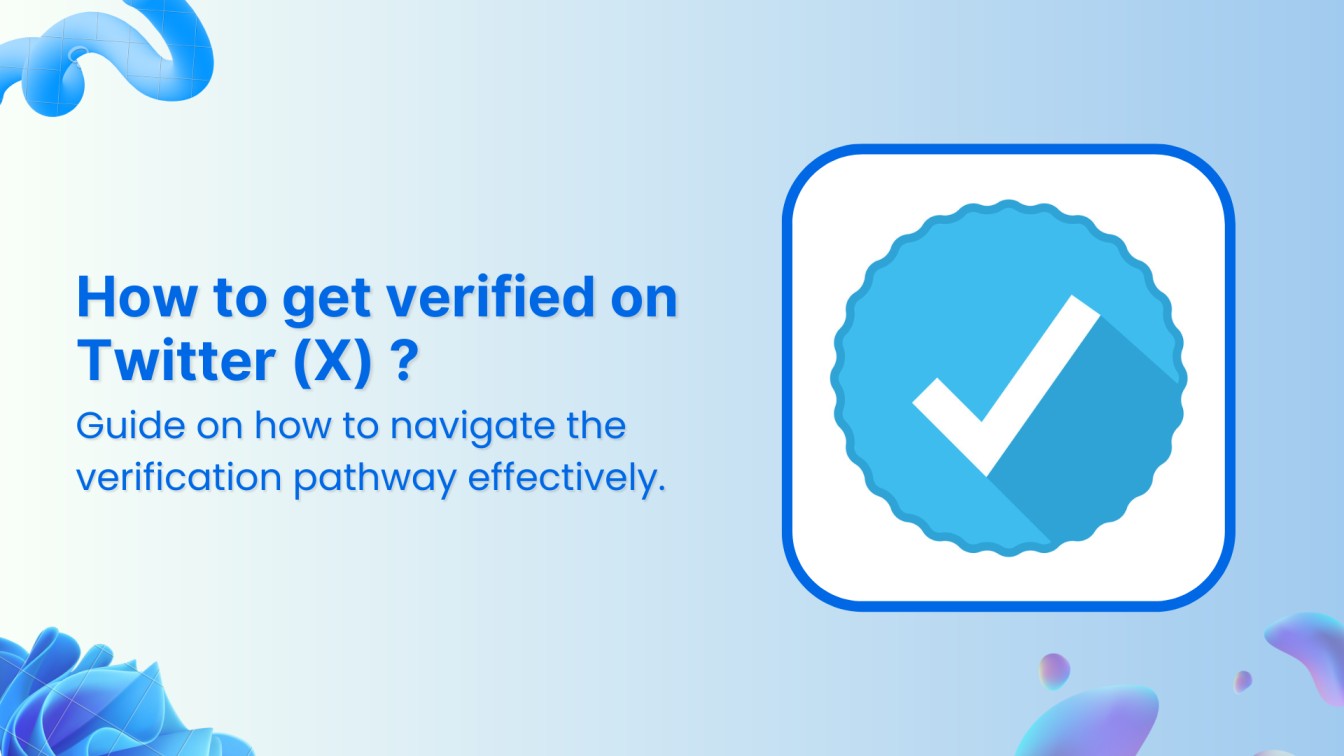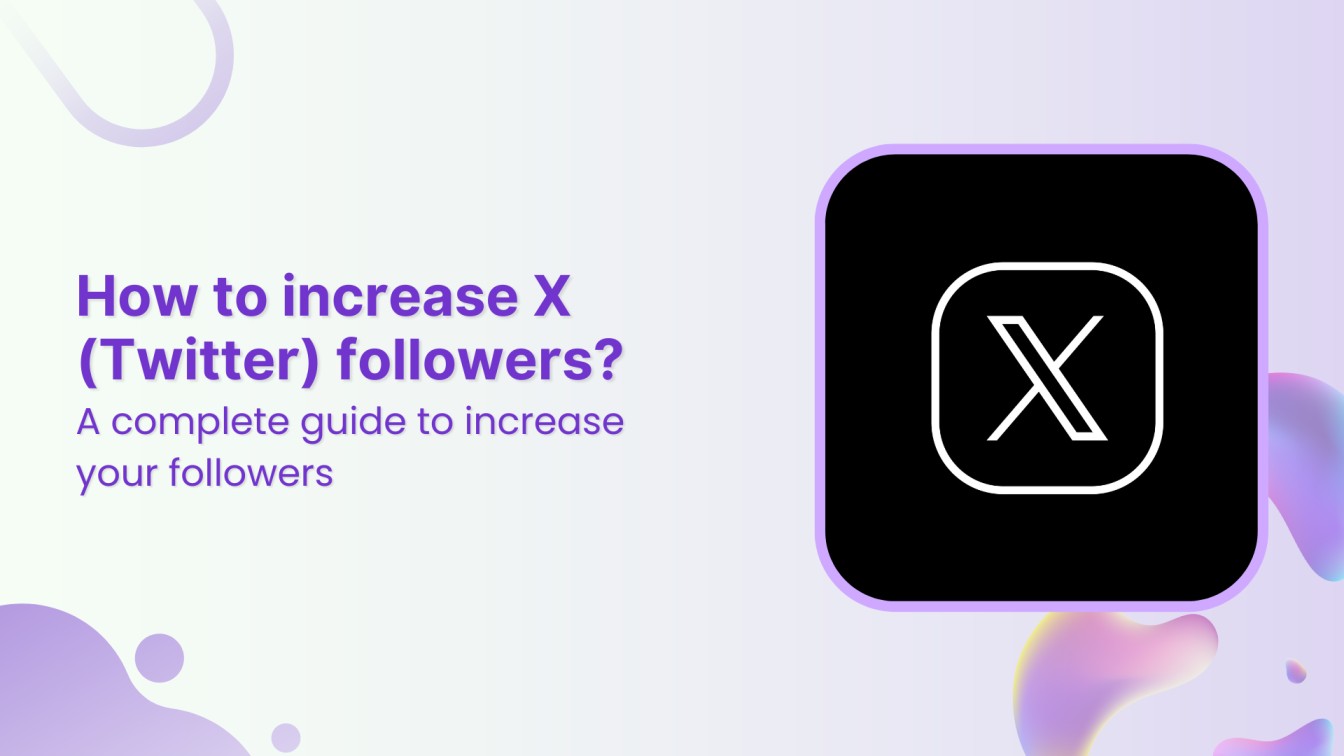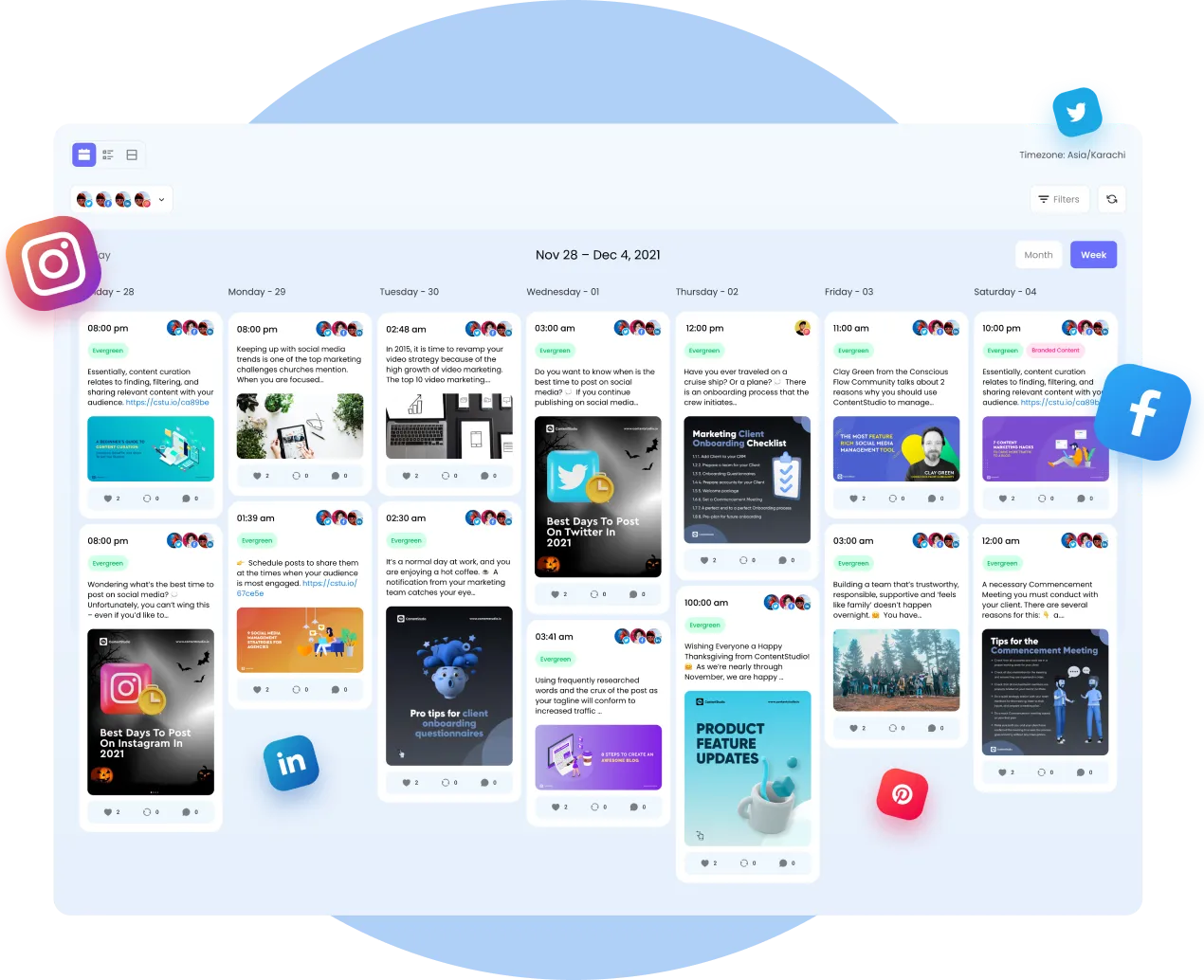Social media for ecommerce uses social media platforms to promote products and services and drive sales. It allows businesses to reach new audiences, increase brand recognition, and build customer relationships. By 2030, social commerce will generate 6 trillion U.S. dollars in revenue worldwide.
If you’re interested in using social media for e-commerce marketing, it’s essential first to understand the different platforms and how they can be used to achieve your business goals.
For example, Facebook is great for building customer relationships, while Instagram is ideal for showcasing products and driving sales. Once you know which platform(s) will work best for your business, you can create and implement a strategy.
What is social media ecommerce marketing?
Through social media e-commerce marketing, or social media for e-commerce, an online store can increase brand awareness, interest in products, and sales by promoting brand awareness, product interest, and sale activities.
This can be done through various means, such as creating and sharing content, running ads, or holding contests or giveaways.
The most common social media e-commerce marketing platforms are Facebook, Instagram, and Twitter. However, other platforms such as Pinterest, Snapchat, and TikTok can also be used.
Several strategies can be used in social media e-commerce marketing, including creating engaging content, running ads, and using influencers.
8 ways brands can use social media for ecommerce
There are many ways that brands can use social media to support their ecommerce activities. Here are 8 of the most effective:
1. Drive traffic to your ecommerce store
Post links to your store
The most effective way to drive traffic to your e-commerce store is to ensure you post links to your store on all your social media accounts and encourage your followers to visit the online store.
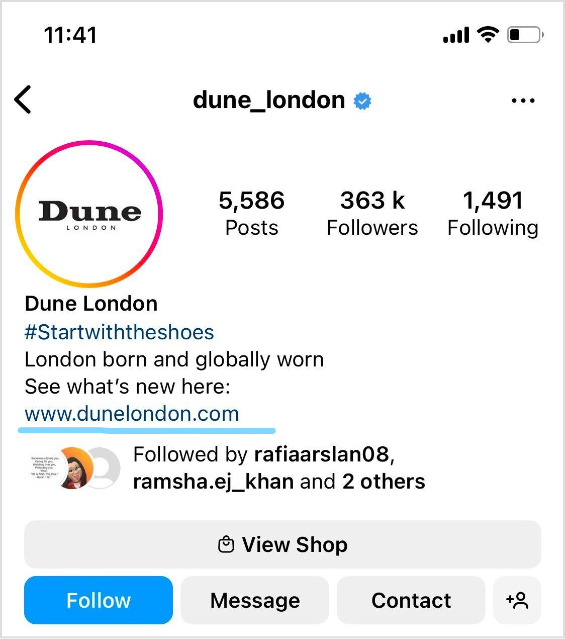


You can also run social media ads targeting potential customers based on their interests and demographics.
Make use of email marketing
Another way is to use email marketing to promote your store. Email is a great way to reach potential customers interested in what you’re selling.



Make sure to include a link to your store in every email you send out, and consider running promotional campaigns specifically for your email subscribers.
Use influencers to promote your products
Influencers are people with a large following on social media who can help promote your products to their audience. Find influencers relevant to your niche and reach out to them about promoting your products on their account.



This can be done through paid advertising, organic posts, or by using influencers to promote your products or store.
Related Read: How to Leverage Social Media Influencers to Discover New Audiences
2. Create an online community around your brand and product
Use social media to create a community around your brand and product. Try to engage with your customers and followers, and create content that is interesting and useful to them.
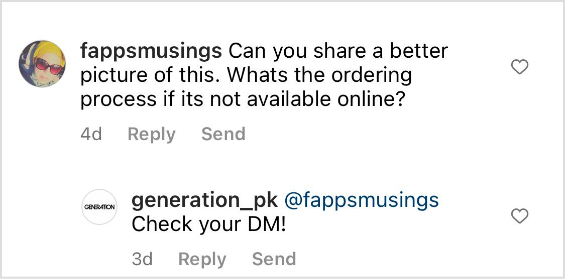


If you build a solid and loyal community, you will have a powerful marketing tool. This will help customers to return to your store.
3. Showcase your products in a favorable light
Social media is a great way to do it if you have a product that you want to show off to your customers.



You can post pictures and videos of your product and offer discounts and coupons to encourage people to buy. This can be done through product photos, videos, or by writing creative descriptions.
4. Offer exclusive deals and discounts to your followers
People who follow you on your social accounts, such as Facebook, Instagram, or Twitter, need to feel like they are getting something other people don’t know about. By providing exclusive offers to your social media followers, you encourage them to share these deals with members of their networks.



Talk about free advertising! This is a great way to generate excitement and encourage sales.
Related Read: Instagram for Business: 14 Tips to Grow Your Audience
Don’t rush anything when you start social media marketing. Before starting a campaign, ensure you understand how your social media presence will develop. Plan a strategy that encompasses all of your lines of attack and proceed accordingly. This will help you use social media marketing most effectively.
If you use social media sites like Facebook for marketing, avoid posting more than a few times daily. Studies confirm that readers and potential customers feel annoyed and overwhelmed when companies constantly issue daily updates. Keep your posts at three or fewer per day if you want to keep the interest of your audience.
5. Collect customer feedback
You can use social media to collect customer feedback by posting surveys or polls on your social media pages. This can be done through surveys, polls, or simply asking customers for their thoughts on your products.



6. Connect with customers and provide customer service
Customer service is one of the most important aspects of running a business. It can be the difference between a satisfied customer and a disgruntled one. In today’s age, social media provides a great platform for businesses to provide excellent customer service. Customers can easily reach out to businesses through social media platforms like Twitter, Instagram, and Facebook. This allows businesses to resolve any issues that customers may have quickly.
Manage your brand’s social presence by monitoring and managing incoming messages and comments across your social networks.


Master Social Customer Care and Support
Furthermore, social media allows businesses to build strong relationships with their customers. By providing top-notch customer service through social media, businesses can create loyal and satisfied customers who are likelier to continue doing business with them. This is a great way to quickly address any issues that customers may have with your products.
7. Stay up-to-date on industry trends
Social media is a great way to stay up-to-date on industry trends. By following industry leaders and influencers, you can get a pulse on what’s new and upcoming in your field.
Also Read: Top 15 Social Media Trends for Marketers in 2024



This can be especially helpful if you’re trying to stay ahead of the curve or keep up with the latest trends in your industry. Additionally, many social media platforms have search functions that allow you to find and follow topics that interest you quickly. This will help you keep your products relevant and ensure you’re always ahead of the competition.
Related Read: Top 10 Content Marketing Trends You Should Follow in 2024
8. Connect with other businesses in your industry
Social media is a great way to connect with other businesses in your industry. You can share information about your business, products, and services. You can also use social media to connect with customers and potential customers.
By engaging with others on social media, you can build relationships, share ideas, and learn from each other. Additionally, social media can be a great way to promote your business and reach new customers. This is a great way to network and build relationships that could lead to future partnerships or collaborations
9. Use social media advertising to target potential customers with ads for your products or services
Social media advertising is a great way to target potential customers with ads for your products or services. By targeting users who are already active on social media, you can reach a large audience with your ads. Social media advertising also allows you to target specific demographics, interests, and locations. This makes it easy to create highly effective ads that will reach your target customers.
10. Use social media analytics to track your performance and measure the success of your ecommerce efforts
Social media analytics can help you track your performance and measure the success of your e-commerce efforts. By analyzing your social media activity, you can see how well your marketing campaigns are performing, what kind of content is resonating with your audience, and where you need to improve.
Stack your key social metrics against those of your competitors and make targeted steps towards social media success.
Analyze, Understand, and Improve Your Social Strategy
Additionally, social media analytics can give you insights into your customer behavior, such as what kinds of products they’re interested in and how they prefer to shop. You can create a more targeted and effective e-commerce strategy by understanding your customers better.
The bottom line is that e-commerce can be a viable (and profitable) way to expand your business. However, it requires forethought and planning to set up e-commerce in the most efficient way possible. By considering the above vital components, you will be well on your way to developing a high-functioning e-commerce platform for your business that will provide you with the growth you are looking for.
The best social media ecommerce tools for 2024
Many social media e-commerce tools are available, but which are the best for 2024? Here are five of the best:
1. Amazon Live



An alternative strategy is used by Amazon Live. It allows businesses to interact with customers in real time through live streams that can be purchased. With a structure that enables in-the-moment brand contact, Amazon Live is created to motivate, instruct, and entertain customers.
You can use it to introduce customers to your goods and give them the details they need to make informed judgments about purchases. In an interactive setting with real-time product demos, you may also utilize live broadcasts to educate audiences about your product’s features, advantages, and promotional offers.
To promote communication, Amazon Live also has a chat feature where you can respond to inquiries and give details in real-time.
2. Creator.co
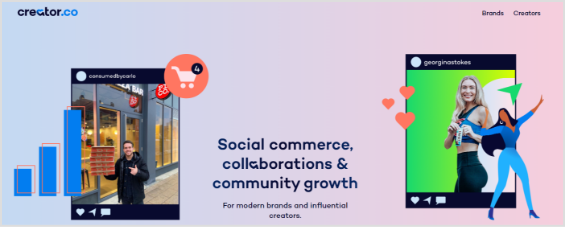


The Creator.co community hub can be used to create, manage, and monitor influencer marketing initiatives for SMEs. Clients have access to a database of millions of influencers through the platform. Various analytics and data tools are used by Creator.co, including advanced analytical tools, high-level reporting, campaign assistance, and more. By empowering creators, influencers, and publishers to sell their products and services across multiple social media platforms, Marketplace+ will facilitate social commerce.
3. Instagram
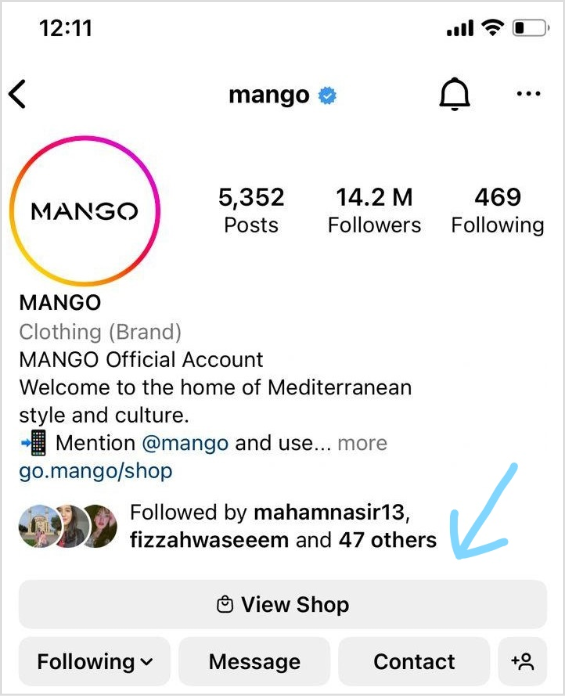


“Shoppable Posts” is Instagram’s primary social commerce feature nowadays.
Its inherent visual nature has always allowed Instagram to compete more successfully than many of its social competitors. When you make an effort to make your images enticing, it has always been the ideal platform for displaying products. Using it for visual storytelling is a great idea.
Related Read: Marketing with Instagram Guides: Tips, Tricks & More
Social commerce wasn’t available on Instagram at first. You link to your online store when someone clicks on one of your Shoppable Posts instead of making the sale directly on Instagram. Instagram has since upgraded Shoppable Posts, which now offers an in-app checkout feature, making it possible for customers to complete their purchases without leaving the app.



4. Tiktok
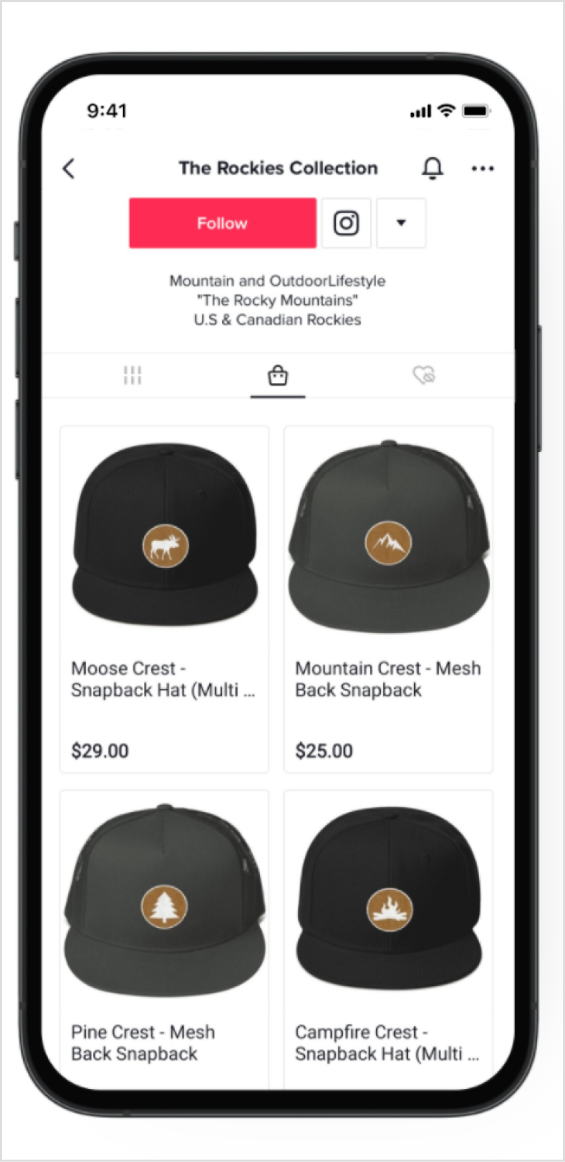


Despite its relatively new involvement with social commerce, TikTok has been testing the concept. The company has already partnered with Shopify on a global level.
A new TikTok channel app can be installed from the Shopify App Store and allows Shopify merchants to create, run, and optimize TikTok marketing campaigns. Using native, shareable content, merchants can create shoppable video ads that appear in the In-Feed feed.
A new shopping button has also been tested between Shopify and TikTok that allows TikTok creators to link to their Shopify storefronts.
5. WeChat



Social selling has grown significantly, thanks to WeChat Social commerce. WeChat relies heavily on mini-programs. Using them, users can share shopping experiences and eCommerce-related content.
Consumers can make purchases and engage with suppliers directly within WeChat is a huge benefit. They can recommend the goods they enjoy to their loved ones. They can take part in every step of the purchasing process without ever leaving WeChat.
Final thoughts on social media for ecommerce
Social media for ecommerce marketing is invaluable for any business looking to maximize its online presence and customer engagement. It allows businesses to reach a much broader audience than ever and build customer relationships. With social media, businesses can track customer engagement, create targeted campaigns, interact directly with customers, and provide better customer service. It also gives businesses valuable insights into their customers’ behaviors and allows them to adapt their marketing strategies to meet changing consumer needs quickly.
The takeaway of this article is to keep you on the right track regarding social media for ecommerce marketing.
Adeel Khan

